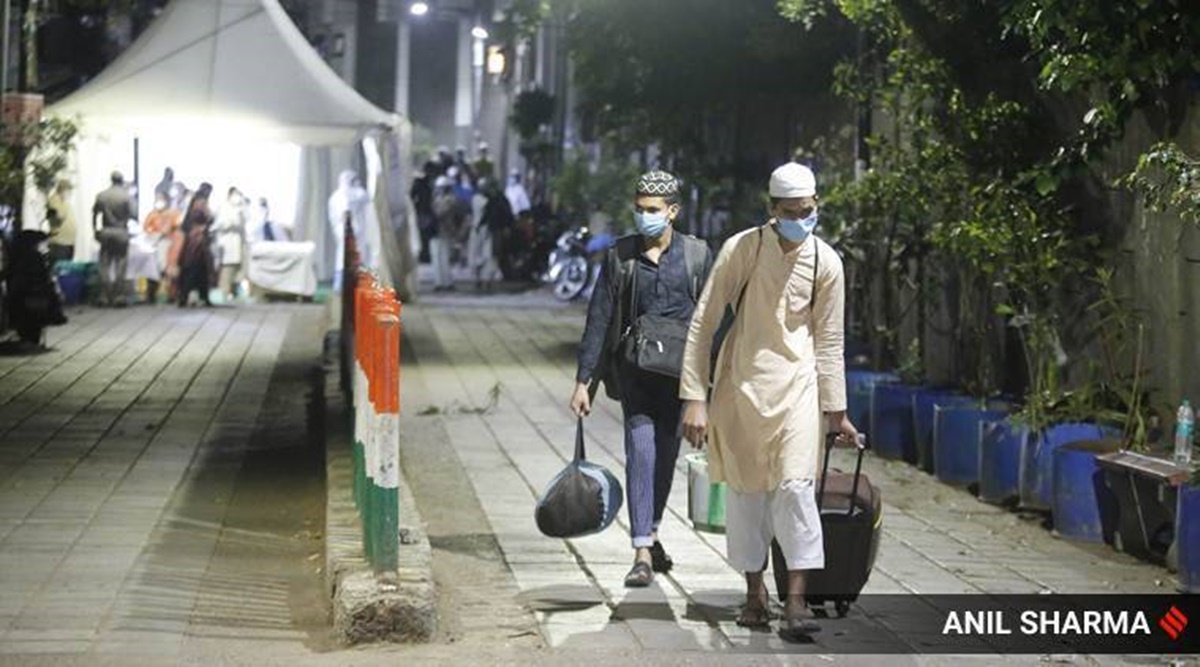The court rejected the Centre and Delhi Police’s submission that only 20 people be allowed to enter the premises at a time out of a police-verified list of 200 persons
Observing that there cannot be a cap on the number of devotees allowed to enter the Nizamuddin Markaz when no other religious place has such a restriction, the Delhi High Court allowed the mosque inside to open for prayers during Ramzan in accordance with Delhi Disaster Management Authority (DDMA) guidelines. The court rejected the Centre and Delhi Police’s submission that only 20 people be allowed to enter the premises at a time out of a police-verified list of 200 persons.
“It is an open place. They don’t have to have a fixed (number of) devotees when no other religious place has…,” observed Justice Mukta Gupta, adding that anybody can wish to go to a temple or mosque or church and a specific list of 200 persons cannot be given by anyone.
“A 200-people list is not acceptable; that cannot be,” said the court. It, however, said that a list of persons managing the mosque can be given to the local SHO.
As per the order passed by the court, an inspection of the mosque in presence of the local SHO will take place on Monday to measure the area for determining the number of people who can offer namaz at the place, in accordance with social distancing norms, and marking the spots where prayer mats can be put for devotees. Asking the authorities to file a status report, the court listed the case for hearing on Tuesday.
Advocate Rajat Nair, representing the Centre, earlier told the court that a list of 200 people can be submitted to the police but only 20 people may enter the mosque at a single time to comply with social distancing norms. Senior advocate Ramesh Gupta, representing the Delhi Waqf Board, told the court that they will follow all the protocol but it would be practically difficult to compile such a list.
Questioning the Centre, Justice Gupta said, “By virtue of these notifications, which have been issued recently, for religious places, have you curtailed the gathering to 20 at a time? What is the maximum number which you have given for each of the religious places.” Nair responded that no such limit has been set but that number is determined by the management of that religious place. However, he added that there is “another issue” when it comes to the mosque at Markaz Nizamuddin.
“You ultimately left to the authorities to find out how they can… provided they maintain social distancing and (use) masks. It has to be commensurate to the place available for worship,” observed Justice Gupta.
Nair submitted that somebody would have to monitor the place as it is a “case property”. However, the court said that nobody was going to take away the building. “It is a structure pertinent to the land and nobody can remove the structure. I do not know in what sense the case property … but nobody is hindering the investigation,” the court added.
Nair also submitted that a camera can be installed in the mosque. The Delhi Waqf Board agreed to do so by Tuesday.
Delhi Waqf Board had earlier approached the court for easing of restrictions at the premises of Nizamuddin Markaz, which has been under lock and key since a case was registered in connection with a Tablighi Jamaat congregation there last year.
Masjid Bangley Wali, Madarsa Kashif-ul-uloom and the attached hostel situated at Basti Hazrat Nizamuddin have been locked since March 2020, the plea of Delhi Waqf Board through advocate Wajeeh Shafiq states, adding the general public is not allowed to enter and offer prayers at the mosque; the students are not allowed to continue with their education at Madrasa; and nobody is allowed to stay at the hostel meant for principal clerics and their immediate family members.
“The Delhi Waqf Board has learnt that the local police has prepared a list of only 5-6 persons of the locality who alone can enter the mosque for the purpose of prayers. The local police opens locks at the main entrance, allows them to enter at the time of prayers; after the prayers are over, those people come out and immediately thereafter the police lock the main entrance again,” the board has said in the petition.
It has also been mentioned in the petition that police have put locks on the entire premises ostensibly in connection with an FIR registered by the police on March 31 last year on the premise that Maulana Mohd Saad and Markaz management allegeded deliberately and negligently violated the government directions and guidelines, but no formal seal has been put on the premises. Basti Hazrat Nizamuddin was failing in the containment zone but was removed from the list in September 2020, it adds.
Source: Read Full Article


